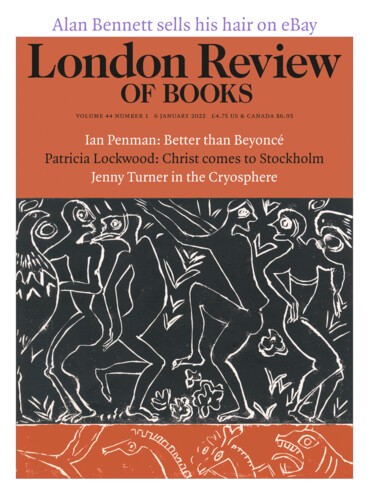Short Talk on Todtnauberg
Celan came up the mountain to visit the philosopher. He came on a wooden cart and was surrounded by a snowstorm. He felt ashamed. Shame is unreasonable. The philosopher was unashamed. He kept whistling. Snow was blinding them both. In the Hütte (hut, cabin, refuge, shelter, small house built of readily available materials) there was only one chair, a hard chair. Snow. I destroy, I destroy, I destroy, sang Death, dressed and ready. Celan loaded his cart and started back down.
Short Talk on Pink
I was fond of the angels. Sky-blue light blew around them wherever they were. The one gave no trouble, lounging quiet in his corner of the fresco, I nodded to him when I went up the stairs. The other had temperament. Stalking the salons, trailing folds of cloud or bloody sunset, making a show. It vexed my father, oh it vexed him. The sound of wings fanning and closing downstairs made him grind his teeth. Father was not a patient man. Still, I was shocked to hear mad cries from the basement one day and went to look. Who knew you could melt angels down, with a hag torch perhaps, or that they turn pink? I had nothing to say, my emotions all over the place, but the weirdest part, as they melted they seemed to devolve down the ages: first heavenly beings, then prehistoric birds, then regular seagulls, then bipedal humans walking away, then glass. They just walked away into glass. Why does everyone look so much more lonely from the back?
Short Talk on No One to Talk to
No one to talk to is a factor in interrogation. How would you do pitted against men who need no solace, saying things like, We are not lonely, you are lonely. Your new shoes are pathetic. Do not lounge in the chair please. You fear the wrong things. Your fear is the wrong fear. On the other hand, that could change. Look how no one to talk to changed.
Short Talk on Voyaging Freely on the Open Sea of Life as Recommended by Hegel
His betrothed, Marie Helena Susanna von Tucher, was younger than Hegel by twenty years and higher by a social class. Hegel had already a bastard son in Jena whose mother was making a fuss. Nonetheless the marriage went forward, in strange blue moonlight, and to the wedding breakfast, which lasted all morning, Hegel wore the hat his sister had bought for him at the Christmas market. She kept trying to tell him something. This failed to happen. The married couple mounted their carriage and drove off. Christiane stood on the road a while. She was searching for a word that would break love’s wrists and throw it down the shit-hole. In 1814 Hegel invited her to come live with them in Nuremberg and help Marie around the house. Christiane was not a success in Nuremberg. Marie-life was every day a precipice. Christiane’s nerves fell apart, her heart had no law. She withdrew to an asylum for some time, then to her hometown, and lived by the river Nagold, considering the use of herbs to moderate the mind. This dining room is nicer than Marie’s, she thought. Winter afternoons strayed in from the river. News of Hegel’s death reached her there in 1831. Three months later she drowned herself. In her will she nominated her brother’s bastard son, Ludwig Fischer, causing unrest in the family. Her letters to Ludwig, as well as all of her poem-stumps, are lost.
Send Letters To:
The Editor
London Review of Books,
28 Little Russell Street
London, WC1A 2HN
letters@lrb.co.uk
Please include name, address, and a telephone number.

